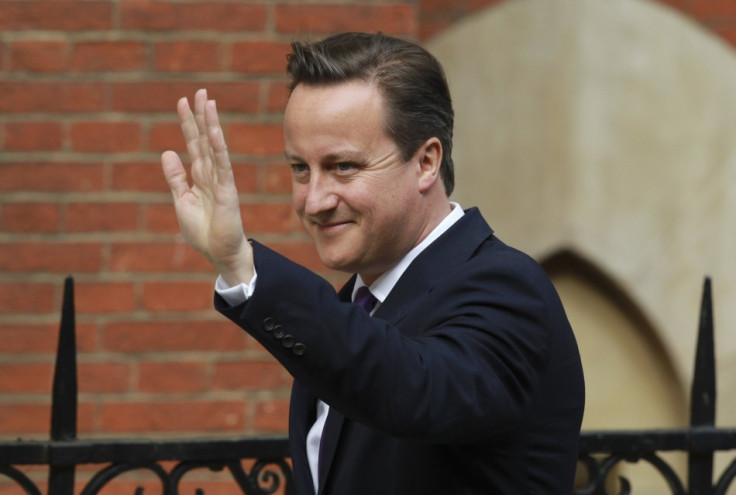Will 2013 Herald a Fresh Start for the Economy? [BLOG]

How can we beat 2012? The year of the Jubalympics. The year British scepticism about being British vanished. After the excitement of last year, it was easy to forget that life would, in fact, continue in 2013 (in spite of what the Mayans may have wanted us to believe). But what do we have to look forward to this year? Could this be the year that Britain finally returns to significant economic growth?
2012 was an incredibly difficult year for retail. According to Deloitte, 6 percent more retailers were forced into administration than in 2011, amounting to over 4,000 individual store closures across the country. There was better news last week when John Lewis announced that sales over the five weeks to 29 December were up by 14.8 percent. Pre-Christmas retail figures may have been depressing but after Christmas the country has witnessed a staggering spike in online sales and a slight increase in footfall on the high street.
In other good news, since the markets opened at the beginning this year, the FTSE 100 has climbed to a 23-month high. Late on New Year's Eve, the US avoided falling over the fiscal cliff, avoiding automatic tax increases causing markets across the globe to rally.
So we're off to a positive start, but can this continue? Prime Minister David Cameron appeared on the Andrew Marr Show with a tone of great optimism about what is to come for the future of the coalition government and the British economy. He cited declining unemployment and continued investment in Britain's infrastructure as reasons for a bright outlook for the year ahead. It's not an entirely rosy outlook though. The prime minister explained: "We've travelled a long way down the road we need to travel, but there's still a lot more to do." Further austerity cuts have already started this year with child benefit cuts and more are expected throughout the year.
Of course, in addition to budget cuts, the dark cloud of Europe's fiscal nightmare continues to linger over us. There is still no consensus on the future EU budget and the threat that Portugal, Italy, Greece, Spain and Ireland will require further bailouts remains as credible now as it was last year. Having said this, realistically we are unlikely to witness large-scale financial collapse in Europe in the coming year. Although it is synonymous with bureaucracy, disagreement and political infighting, the EU has always managed to muddle through its problems and support its member states through their worst economic troubles and there is no reason to think that this will not be the case in the future.
In a recent blog post, entrepreneur Richard Branson celebrated the positive economic impact EU membership had on the UK. He believes that far from restricting, the union strengthens our position in an increasingly global network of trading agreements; a 27-member European Union is in a much better position to negotiate deals with China than the UK is on its own. In 2013, Europe is not a real threat to the economy and may, in fact, present an opportunity for economic growth.
Will 2013 be a year of sustained growth? Can we avoid a triple-dip recession? In a recent survey by the Institute of Directors, just one in six business leaders expect Britain to sink into a third period of recession. Unemployment declined last year, and this trend looks set to continue. Since the beginning of the financial crisis, we have seen a series of changes to the space in which business can operate. Online sales have become a fact of retail, and instead of attempting to revive the pre-crisis high street, retailers must take into account the changing landscape and change their business models accordingly.
Banking has also undergone a redesign and 2013 may well be the year that some degree of confidence is returned to the banks. The Royal Bank of Scotland intends to completely separate its investment and retail banking divisions; new banking regulations are set to be finalised this year which should bring some stability to the industry and at the weekend, it was announced that the rules on minimum quantities of cash and liquid assets all banks must hold have been relaxed.
Further afield, saving the US economy from plummeting over the Fiscal Cliff was a positive start to the year, but there are difficulties yet to come. The US is expected to reach its debt ceiling at the end of next month. After this, its self-imposed borrowing limit is reached and this cannot be increased unless congress agrees. The US political debate is already heating up between the increasingly hostile political parties. Optimists can argue that as the money is required to provide services already agreed by congress, it shouldn't be difficult to reach agreement. However, the increasing fragility and volatility of US politics may bring political considerations ahead of common sense.
We may only be a week into the new year but overall, our future prospects seem to be looking up. There are still economic challenges ahead, but 2013 may well mark the end point of a long, difficult financial crisis.
© Copyright IBTimes 2025. All rights reserved.





















